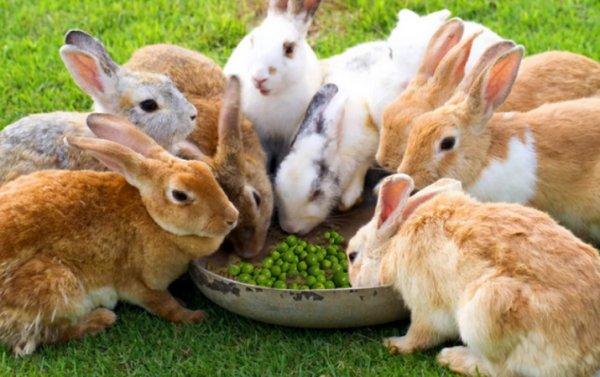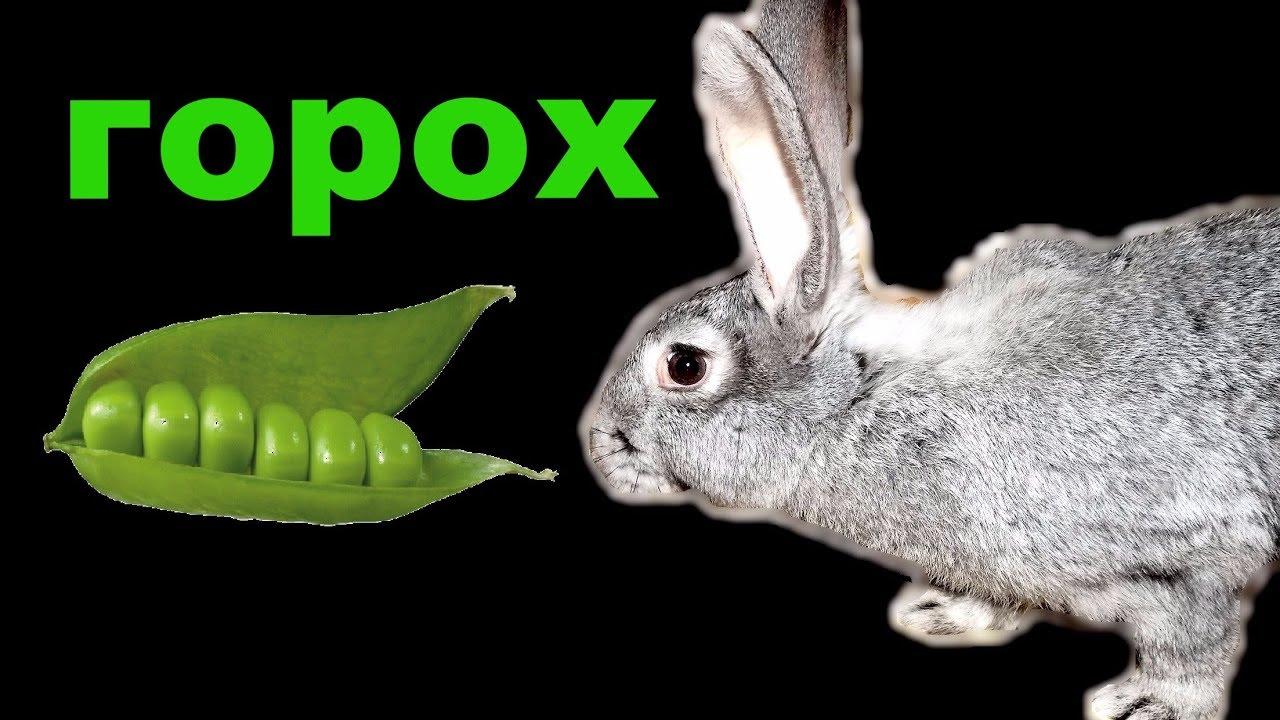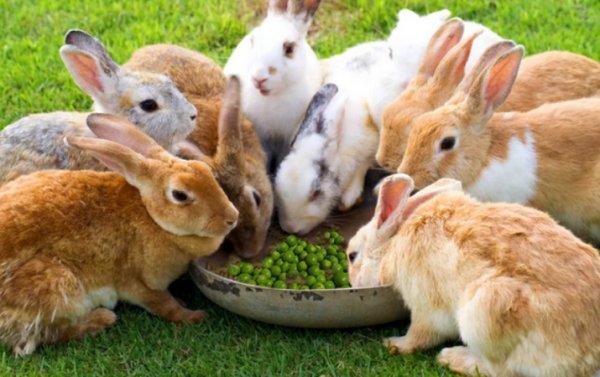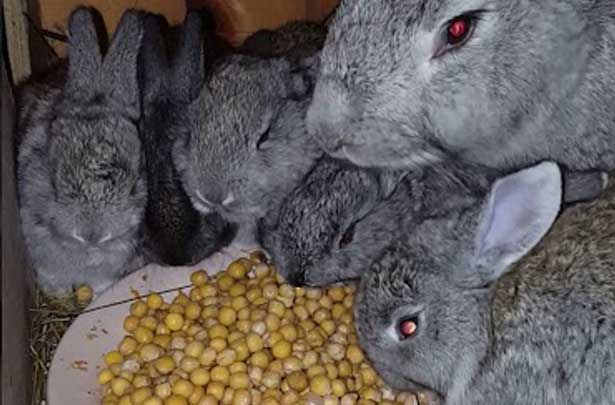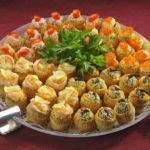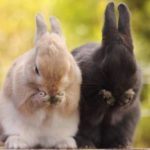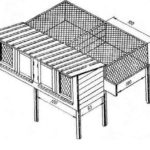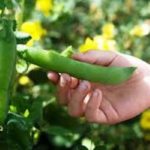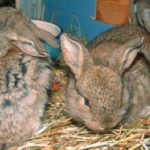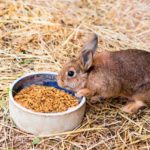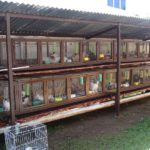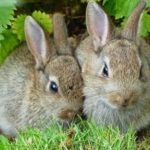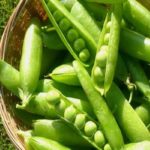Beginning rabbit breeders have many questions about feeding animals, in particular, whether it is possible to give peas to rabbits. Doubts are caused by the fact that legumes provoke flatulence, and rabbits are not in excellent health and often suffer from overeating and eating inappropriate food. However peas are good for you, it contains many nutrients that promote rapid growth and weight gain.
Is it possible to feed rabbits peas?
Legumes are a valuable source of easily digestible proteins, vitamins and minerals.Despite the fact that they can provoke bloating and colic if consumed in excess, they are indispensable as food for rabbits, especially in the cold season.
Peas are especially useful. This is an affordable, healthy crop that is easy to prepare for the winter in sufficient quantities. But in order for rabbits to receive only benefits from peas, the animals must be fed strictly according to the rules. In this case, feeding peas will only be beneficial; the rabbits will be strong, healthy, and resistant to diseases. They will be active, gaining weight well, with a smooth, silky skin.
Green peas
Fresh green peas, fresh from the garden, are contraindicated for rabbits. The presence of moisture in it can enhance fermentation processes in the digestive organs, which will cause the development of disease and deterioration in the well-being of animals. But if pods or shelled green peas dry a little, wilt, the risk of flatulence can be reduced to zero.
During the drying process, the amount of liquid in the pods and peas decreases, but the nutrients do not decrease. Such peas are better digestible and beneficial, especially as a green supplement during winter feeding, when there is an acute lack of nutrients and vitamins.
Tops
This product is no less healthy and tasty by rabbit standards. After growing green peas, a lot of green mass remains in the beds. The most competent method of preparation is drying for the winter, since at this time of year colic especially needs high-calorie and vitamin nutrition. Fresh tops are not given to animals because of the excessive amount of moisture, which causes pain and colic in the abdomen.The collected tops are dried and then given to rabbits as a supplement, but not the main food.
Dry peas
Stocking up on dry peas is a great way to make winter rabbit food abundant and varied. This is especially important for feeding pregnant and lactating females, as well as when raising animals in unheated rooms or outdoors. However, dry peas in unprocessed and unprepared form are not given to rabbits. Unlike green varieties of food, which are pre-dried, hard dry peas are soaked, processed and fed according to a special pattern.
It is imperative to follow the recommendations for the preparation of pea feed, since non-compliance will cause refusal of food in the best case and death of the rabbits in the worst situation. In addition to peas, other legumes can be included in the diet of rabbits - beans, soybeans, lentils, and beans. At the same time, the principles of serving and processing are preserved, that is, the stems, pods and other greens from the plants are slightly dried, removing excessive moisture, and the fruits are steamed, crushed or crushed into puree. In this case, legumes are perfectly eaten and digested without problems.
However, you cannot abuse such food, much less make it the main food product. Legumes should be a healthy addition, but not a staple.
Among the plants of the legume family, alfalfa greens are also fed to rabbits as food, including in the form of hay in the cold season. This is a very healthy food that helps increase body weight and improve the health of animals.
Feeding rules
Any pea food must be prepared before serving to rabbits.If withering is enough for green peas in pods and collected fresh tops, then dry and shelled peas need to be turned into a pulp and added to other feeds. To obtain the product proceed as follows:
- Dry or green split peas in a clean, washed form are placed in a large container with the expectation that the volume of the finished product will at least double.
- Pour in twice as much boiling water as the amount of legumes.
- Add half a tablespoon of table salt for every liter of liquid.
- Leave to swell and infuse for 2 hours.
- Dried swollen peas are mixed with bran, grated root vegetables - carrots, beets, silage.
- Green peas are pureed and added to grain or feed.
In winter, adult rabbits and pregnant rabbits are given 50-60 grams of pea puree or steamed grain per day; nursing mothers are given up to 100 grams. Babies over 1-2 months are given 20 grams, three-month-olds – 30 grams, four-month-olds – 40 grams, rabbits over 4 months old are given an “adult” portion – up to 60 grams.
In the summer, peas in various forms, including tops, are added to regular feed no more than 2 times a week. The pods, once dried, can be used in minimal quantities as a treat for domestic rabbits living as pets in the house.
Possible contraindications and harm
Because peas and other legumes can cause bloating, the amount and frequency of use should be limited. They should not become the basis of a rabbit's diet, otherwise they will develop digestive problems.
If a rabbit eats a little too much properly cooked peas, nothing dangerous will happen to him.He will have colic, which will cause discomfort and restlessness, possibly bloating and indigestion. It will pass after some time. It is important to immediately draw conclusions and stop overfeeding animals with legumes.
It’s another matter if peas are given without prior preparation. This can cause serious health problems and even death for rabbits. This is especially dangerous for pregnant and pregnant rabbits, as well as small rabbits.
It is believed that peas and other similar foods can be given to babies older than 1-2 months, little by little at first, monitoring their health. If signs of illness appear, peas should be removed from the menu for a while. Pea mash and puree are useful for nursing rabbits, as they help enhance lactation and improve the quality of milk. But here, too, moderation and proper preparation of ingredients are important for success.

